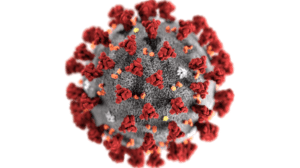The Federal University of Goiás (UFG) through the Secretariat of Planning, Evaluation and Institutional Information (Secplan/UFG) carried out a technical study on the coronavirus and its impact on health and the economy in Goiás.
The objective of the research is to predict the future behavior of the epidemic in the state, in relation to the international and national contexts, and the possible socioeconomic impacts of the measures adopted by the state government.
Study the spread of the virus
After evaluating the evolution of the pandemic in other countries, the study concluded that the number of cases tends to grow exponentially from the 50th case onwards. According to the survey, Brazil follows the same trend seen in France and has an average rate of 29.3% new cases per day. In Goiás, the growth rate is 22% per day. If this trend continues, the 50th case could occur on March 31.

In one of the main epicenters of the epidemic in the country, São Paulo, the average rate is 28.3% per day. In comparison with the São Paulo scenario, the numbers in Goiás are not so high.
Underreporting or result of isolation?
However, the researchers are not sure about the low growth rate of cases in Goiás and warn that there may be underreporting of the disease.
On the other hand, this number may also reflect the effects of the quarantine decreed by the state government. “If they are the effects of restrictions on the movement of people, the spread of covid-19 can be controlled”, say the researchers.
Restrictive measures and economic impacts
Therefore, research found that the measures adopted so far by the state government are in line with what was done in the Chinese city of Wuhan, where there is no longer community transmission of the virus. The main focus of infection cases in Goiás is located in Goiânia. According to the researchers, the state must act to contain the emergence of new outbreaks and avoid a situation similar to that of Italy, where the existence of several outbreaks makes it difficult to concentrate efforts.
The restrictive measures, however, generate significant economic impacts on the activities of several sectors, as they change the dynamics of the functioning of the service and trade structures in the state of Goiás. The state of emergency was declared in the state on March 13. School classes were suspended and sporting events began to be held without the presence of the public.
In short, new decrees were published later, suspending economic activities at fairs and shopping centers, gyms, bars and restaurants. Interstate transport was also prohibited. According to the study, the maintenance of such measures is important to slow the spread of the disease. However, they can have significant impacts on the state's economy.
“However, these measures, if prolonged, on the one hand can lead to layoffs, closure of companies and a decrease in tax collection, enhancing the economic crisis. On the other hand, if not adopted, they can lead to a collapse in the public health system, in addition to increasing the number of deaths from the disease”, say the researchers.
Therefore, despite the worrying scenario, carrying out studies on the impacts of restrictions can contribute to the elaboration of public policies with the objective of normalizing the economy in the State. “There are two necessary fronts of action: one in the area of health and the other in the area of economics”, they conclude.


